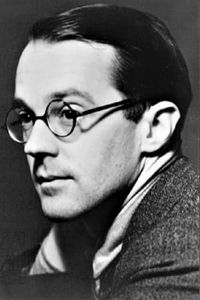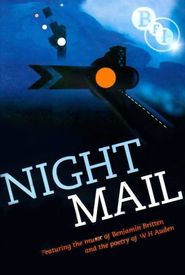Basil Wright, a visionary and versatile figure, left an indelible mark on the world of documentary filmmaking. As a master storyteller, he brought to life some of the most enduring and thought-provoking films of his era.
His creative output was marked by a series of iconic productions, including Humphrey Jennings' A Diary for Timothy, a poignant and deeply personal exploration of wartime Britain. Additionally, Wright's work on A Defeated People and Instruments of the Orchestra, featuring Benjamin Britten's The Young Person's Guide to the Orchestra, showcased his ability to craft engaging and informative films that captivated audiences.
As a director, Wright's cinematic vision was showcased in films such as Waters of Time, a sweeping narrative that explored the power of human resilience, and World Without End, a thought-provoking examination of the consequences of human actions. His collaboration with notable artists and friends on Greece: The Immortal Land further cemented his reputation as a master filmmaker, capable of weaving together diverse creative forces to produce works of lasting significance.
Not only did Wright excel as a filmmaker, but he was also a remarkably productive writer and thinker, leaving a lasting impact on the theoretical foundations of documentary cinema. His written contributions to esteemed publications such as Cinema Quarterly, World Film News, and Documentary Newsletter not only showcased his mastery of the craft but also played a pivotal role in shaping the evolution of documentary filmmaking as an art form. Furthermore, his tenure as a film critic for The Spectator and his regular contributions to the British Film Institute's Sight and Sound magazine demonstrated his expertise and passion for the medium, solidifying his status as a leading authority in the field.
Wright's literary endeavors have resulted in the publication of a notable book titled "The Uses of Film" in the year 1948, which has since become a significant contribution to the world of film studies. Additionally, his comprehensive and exhaustive history of cinema, aptly named "The Long View", was released in 1974, offering a profound and in-depth exploration of the evolution of the film industry.
Throughout his illustrious career, Wright has been an ardent educator, devoting his time and expertise to the mentorship of numerous students at prestigious institutions such as the University of Southern California, a renowned academic hub for the study of film and television. He has also shared his knowledge and insights with students at The National Film and Television School in London, a leading institution in the field of film and television education. Furthermore, Wright has taught at Temple University in Philadelphia, a prestigious institution in the United States, where he has had the opportunity to impart his vast knowledge and expertise to a new generation of film enthusiasts and professionals.
Noted filmmaker Wright's professional trajectory was marked by a plethora of esteemed recognitions, with a notable stint as the Governor of the prestigious British Film Institute, a prestigious distinction that solidified his reputation within the industry.
Furthermore, he was honored with the distinguished title of Fellow by the British Film Academy, a testament to his outstanding contributions to the world of cinema.
In addition, Wright held the esteemed position of President of the International Association of Documentary Filmmakers, a role that enabled him to share his expertise and passion for documentary filmmaking with a global audience.
The impact of his work continues to be felt, with his legacy being celebrated through a biennial film prize awarded by the esteemed Royal Anthropological Institute in Britain, a poignant tribute to his enduring influence on the world of film.
Noted documentarian Wright's innovative cinematic approach, characterized by an unwavering commitment to meticulous detail and a pioneering spirit of experimentation in editing and sound design, has had a profound and lasting impact on the documentary filmmaking landscape, leaving an indelible mark that continues to shape and inspire the work of contemporary filmmakers, who remain deeply influenced by his groundbreaking style and artistic vision.


















